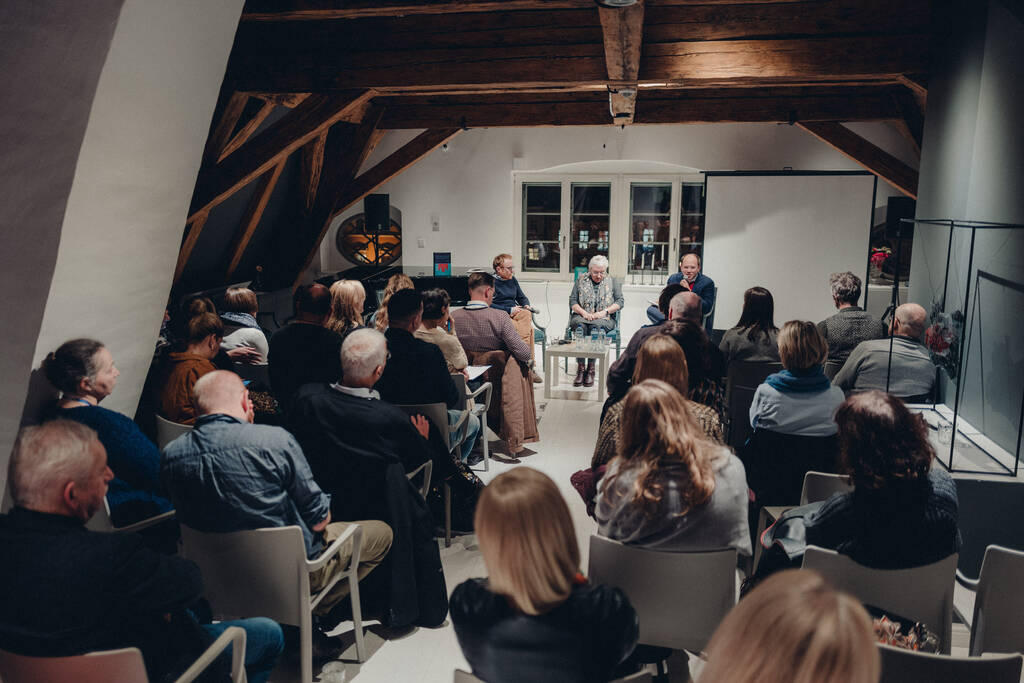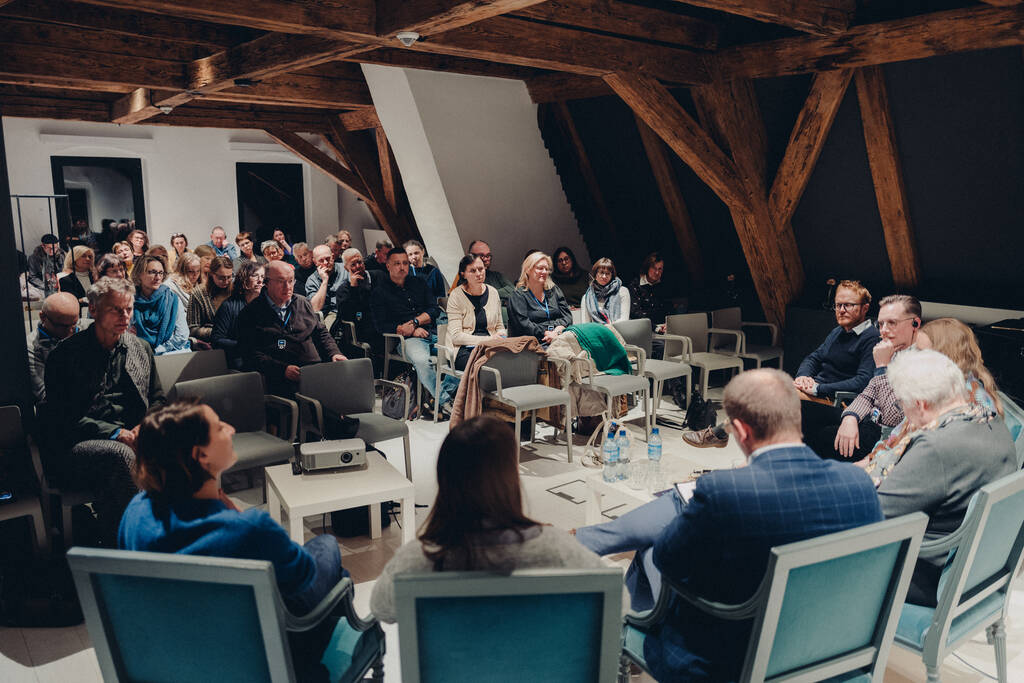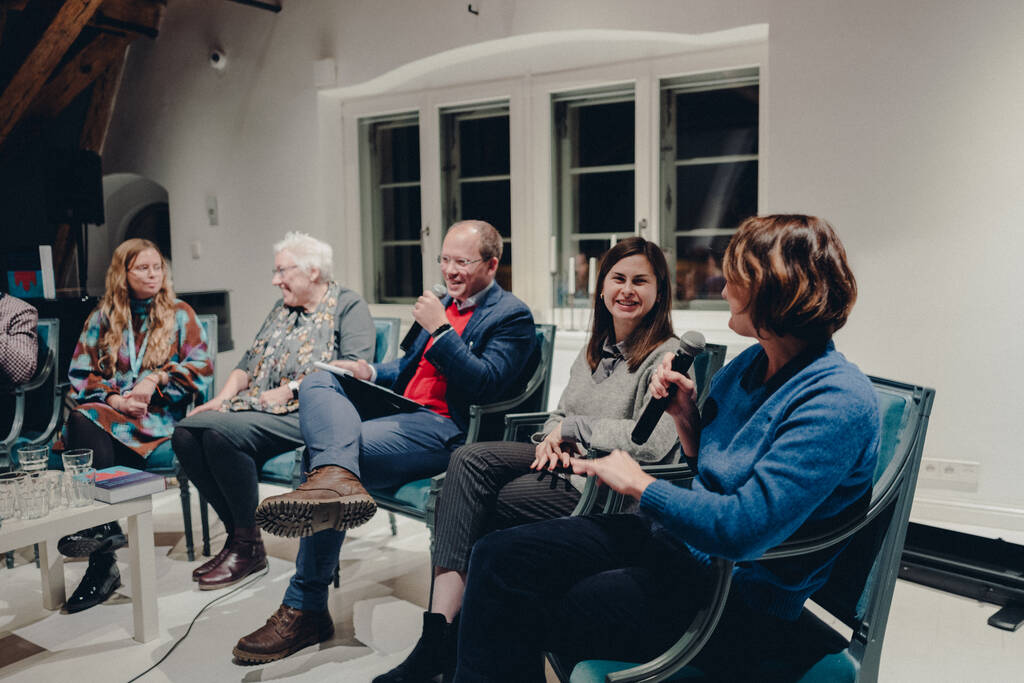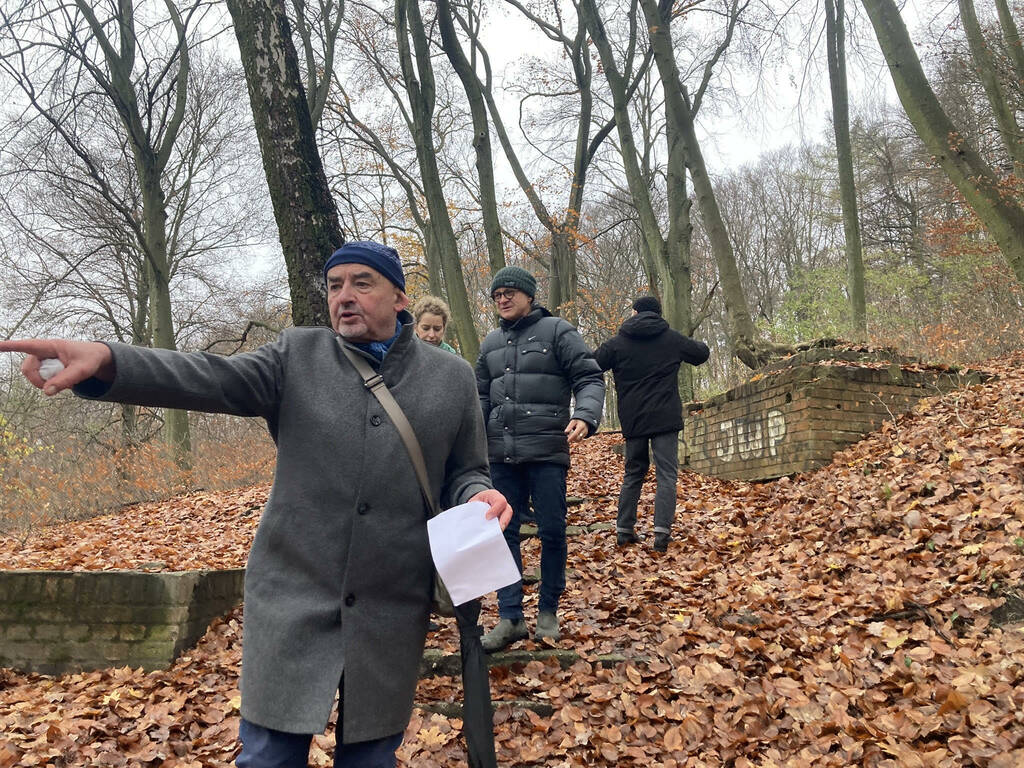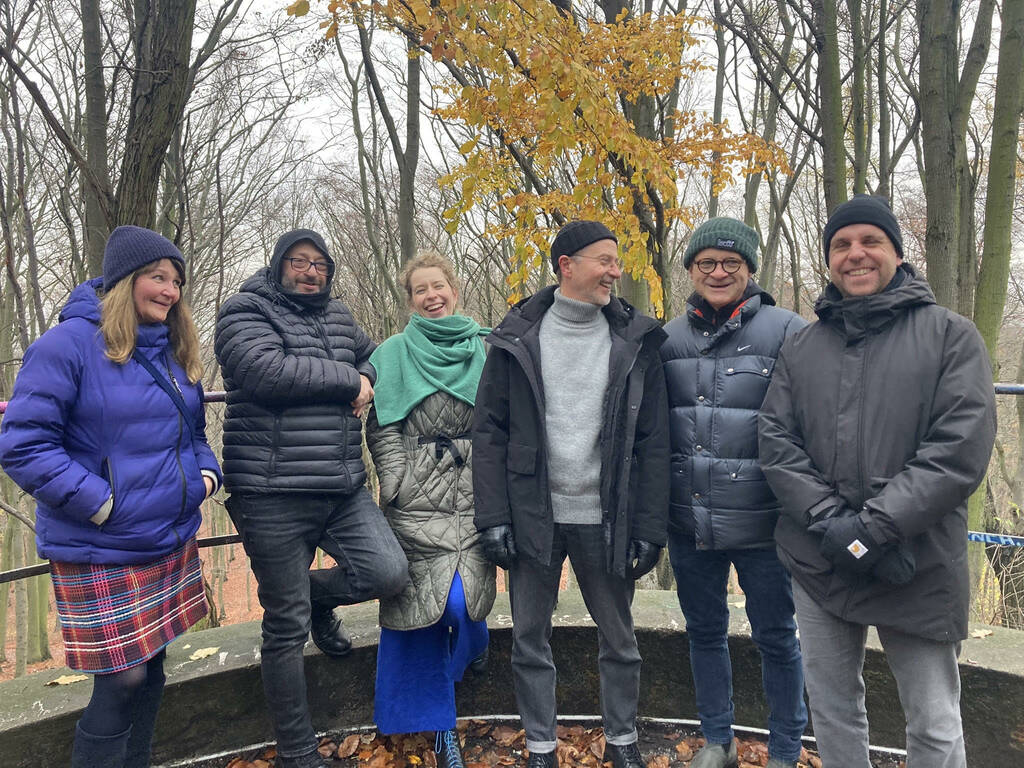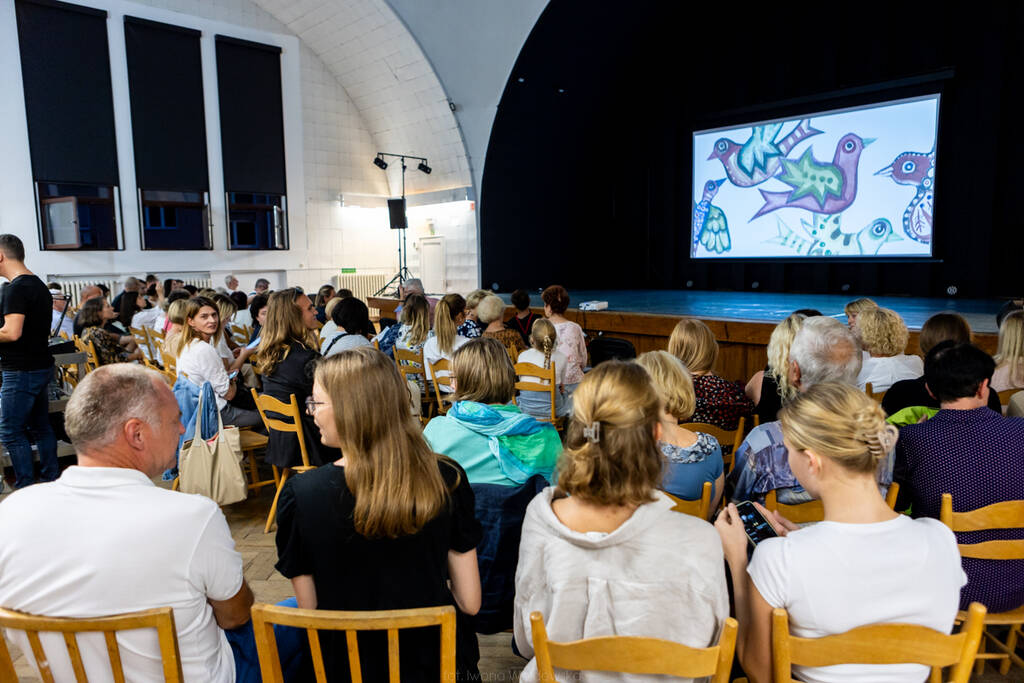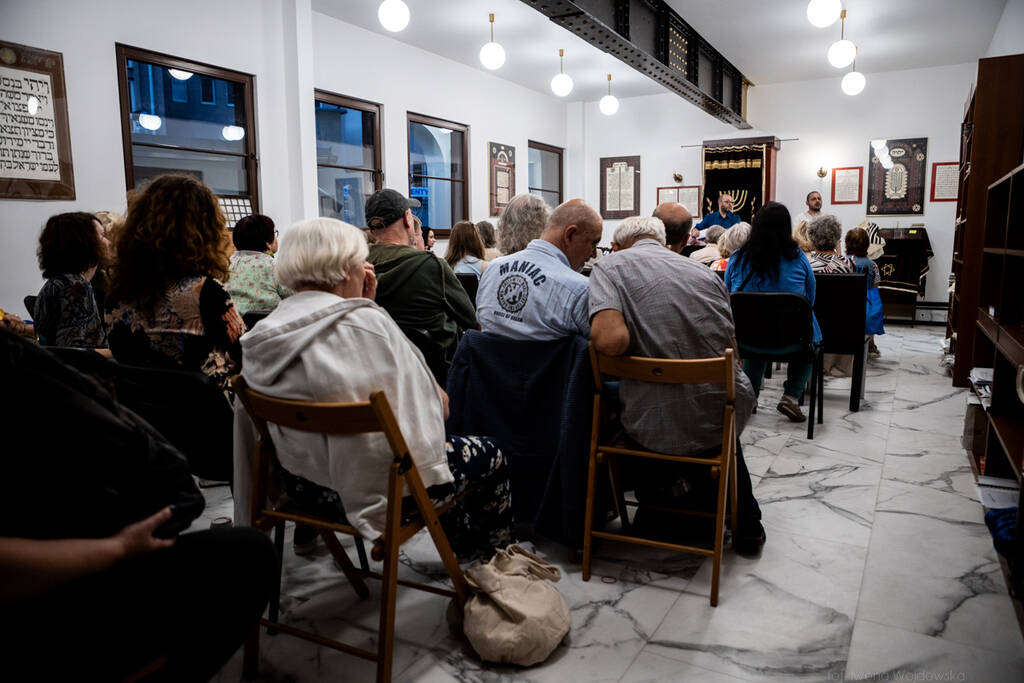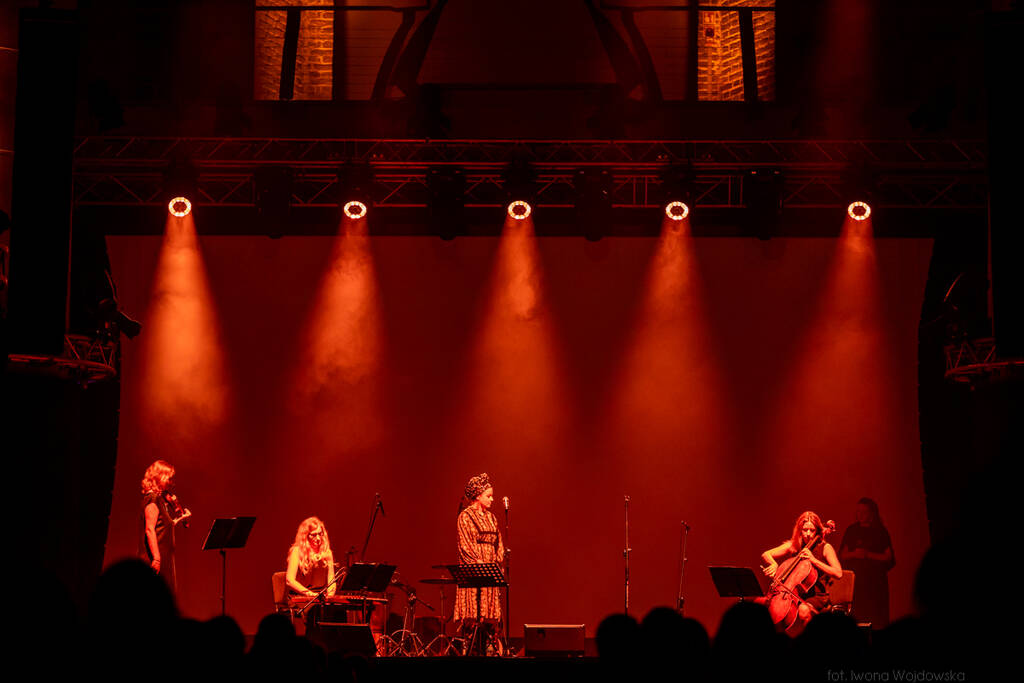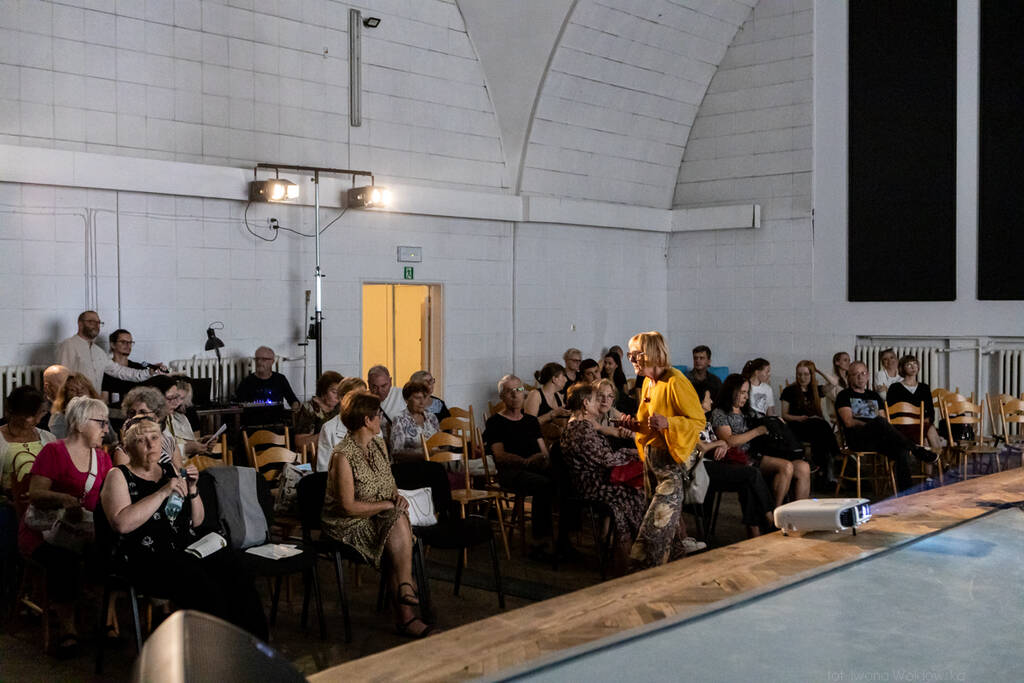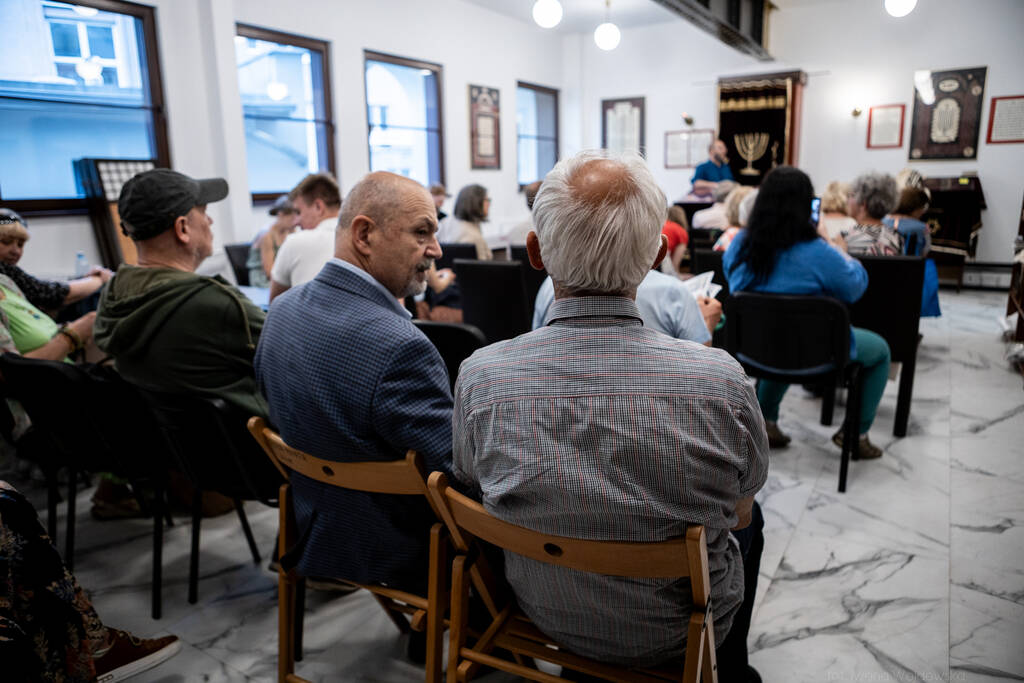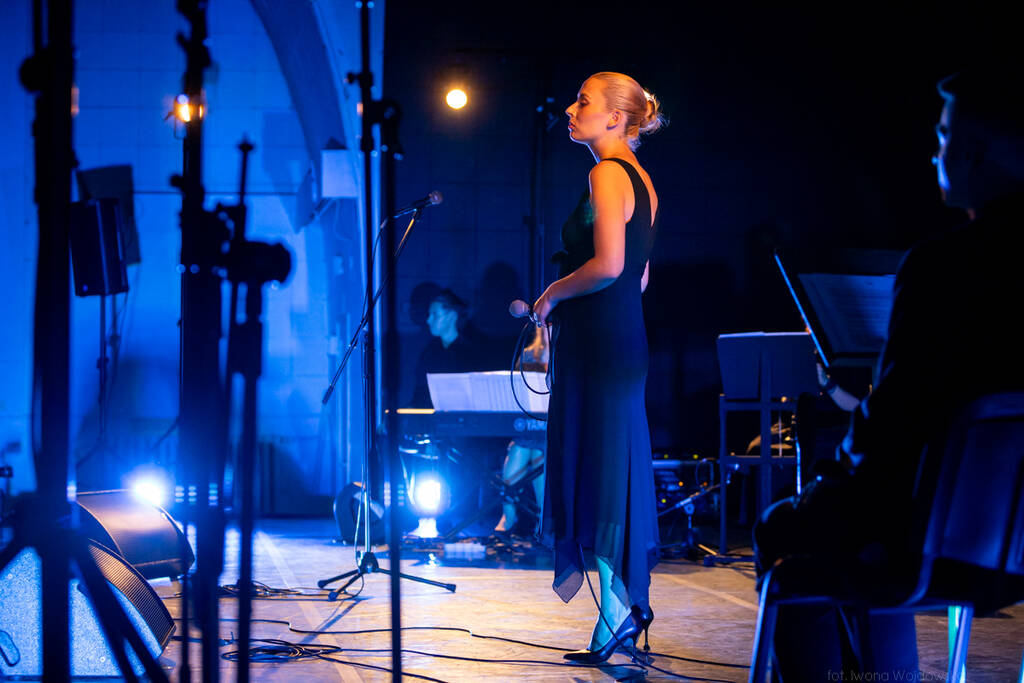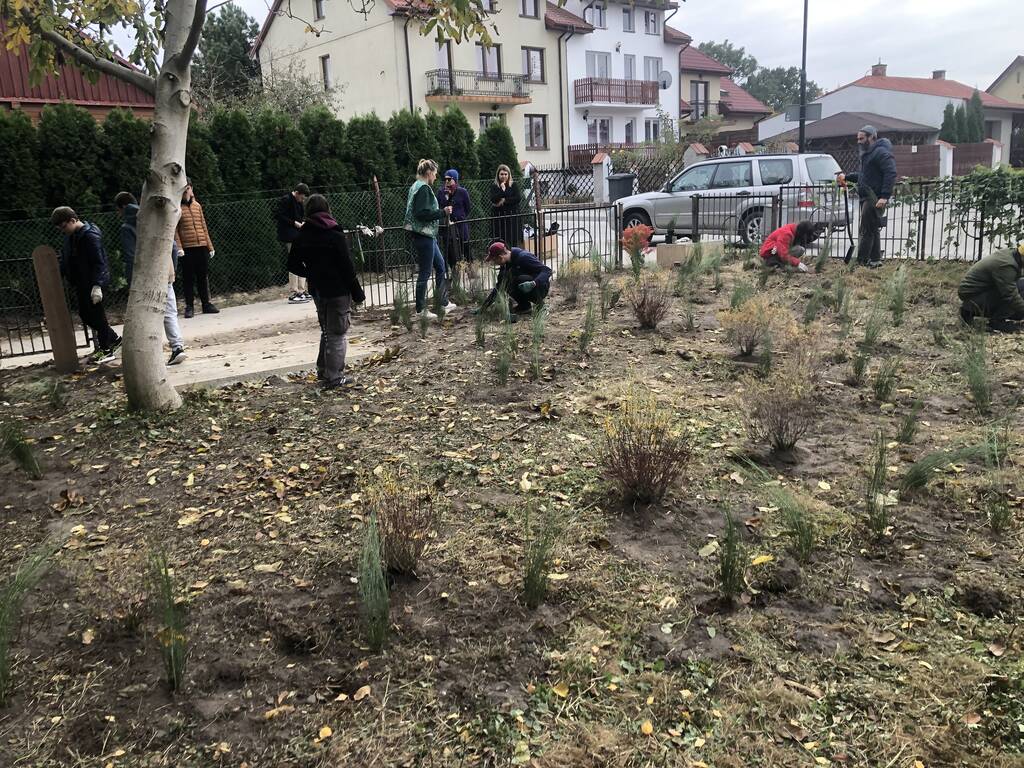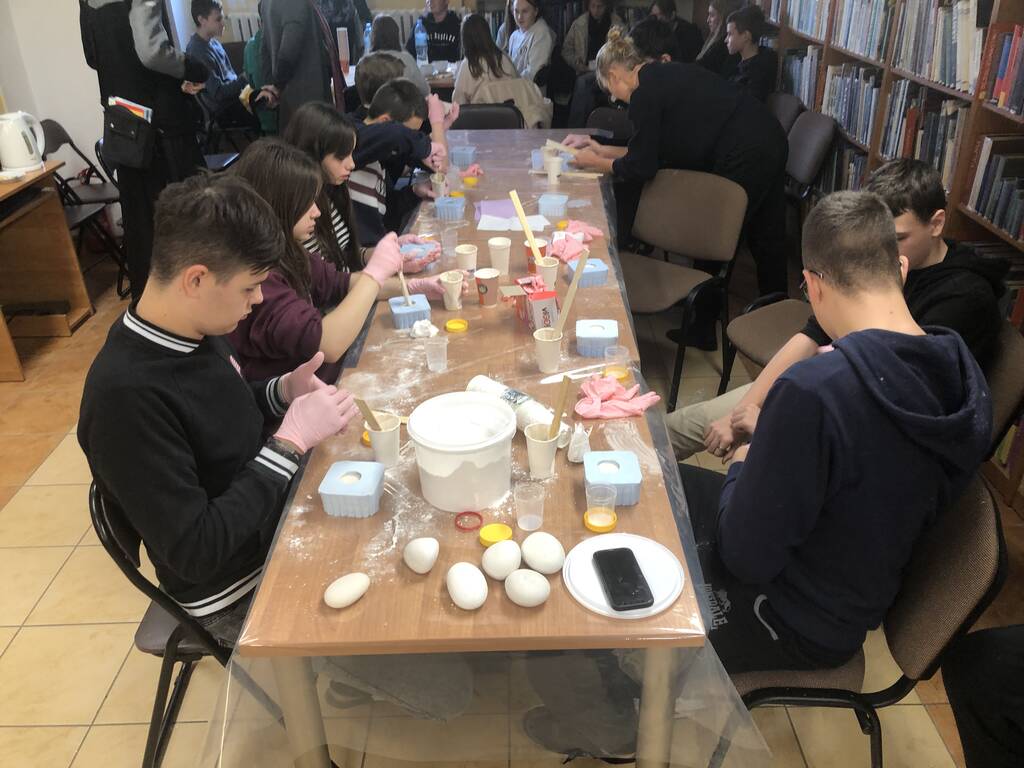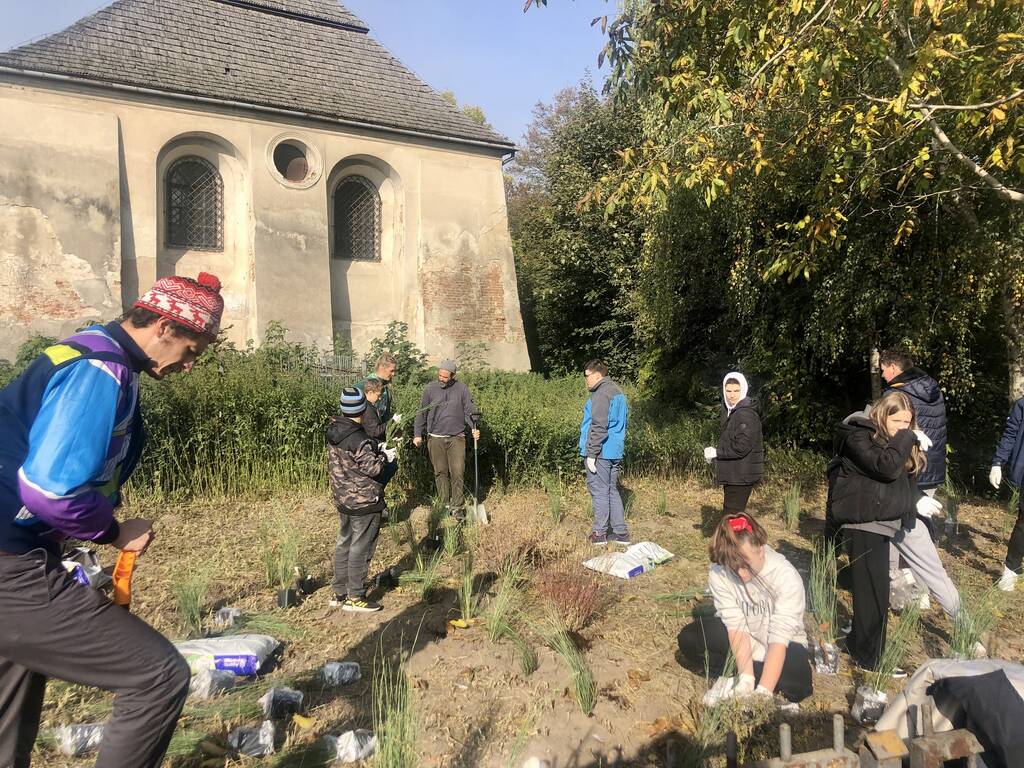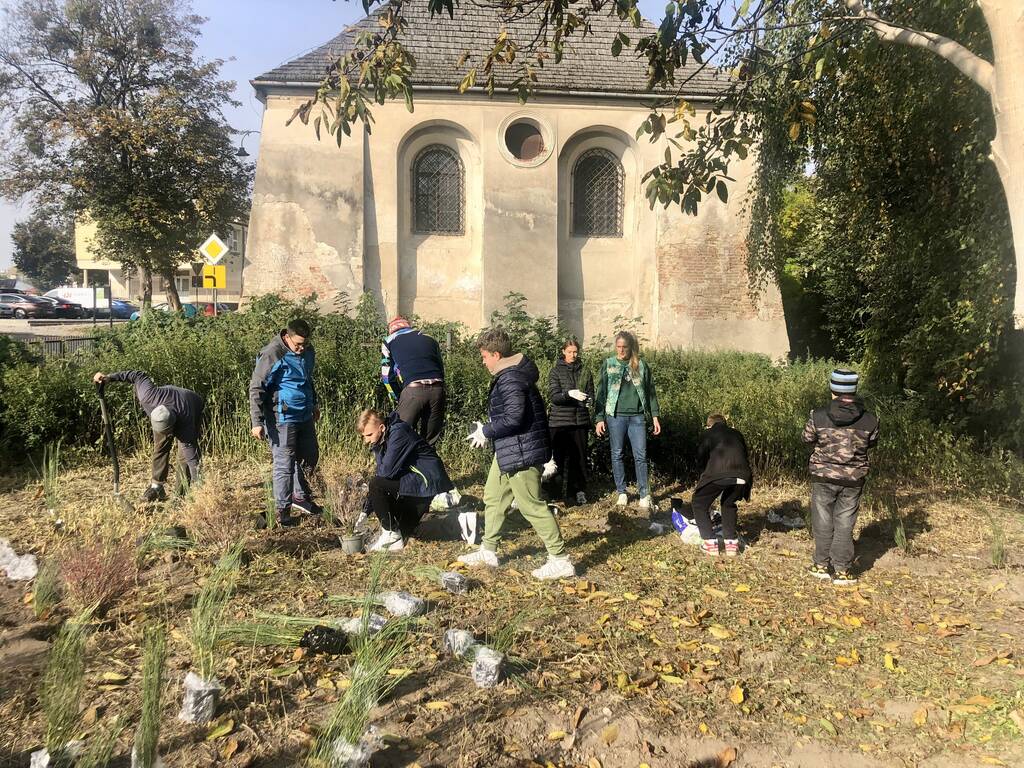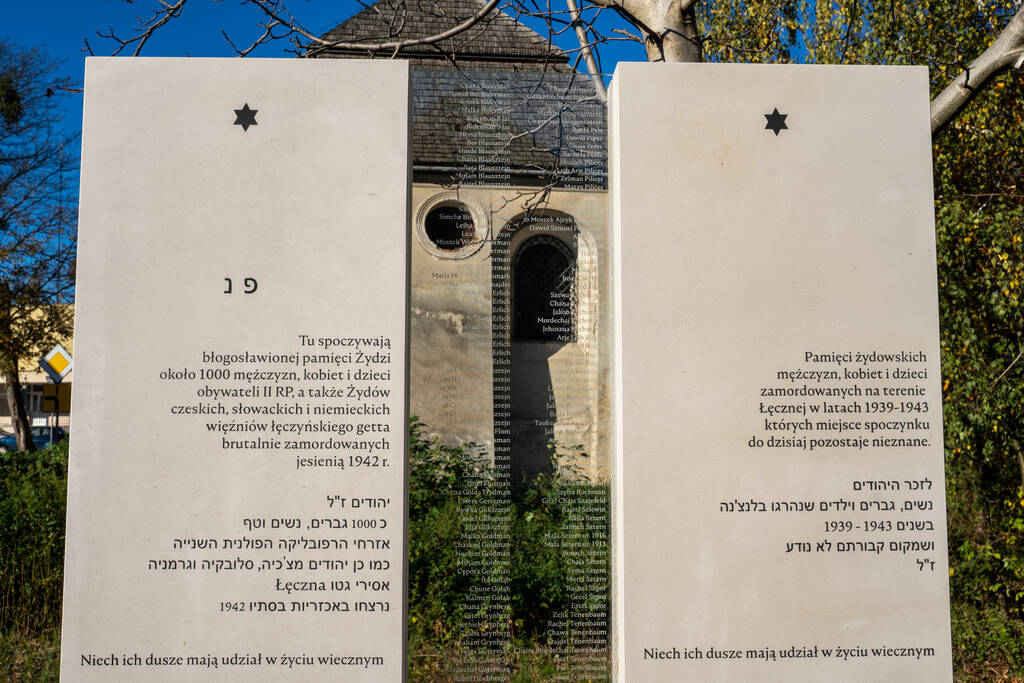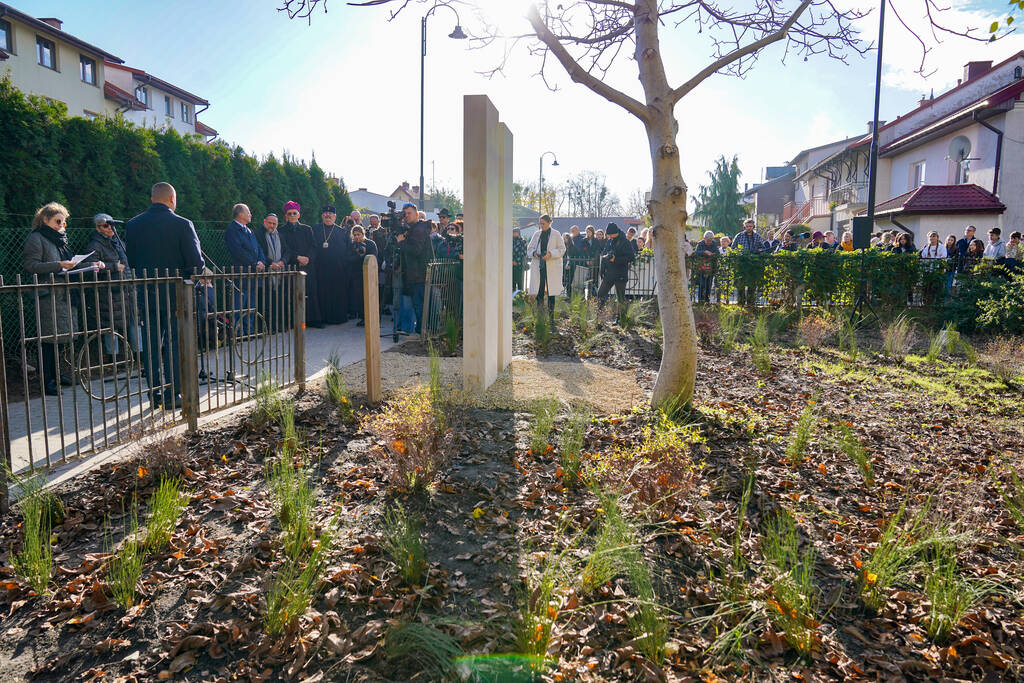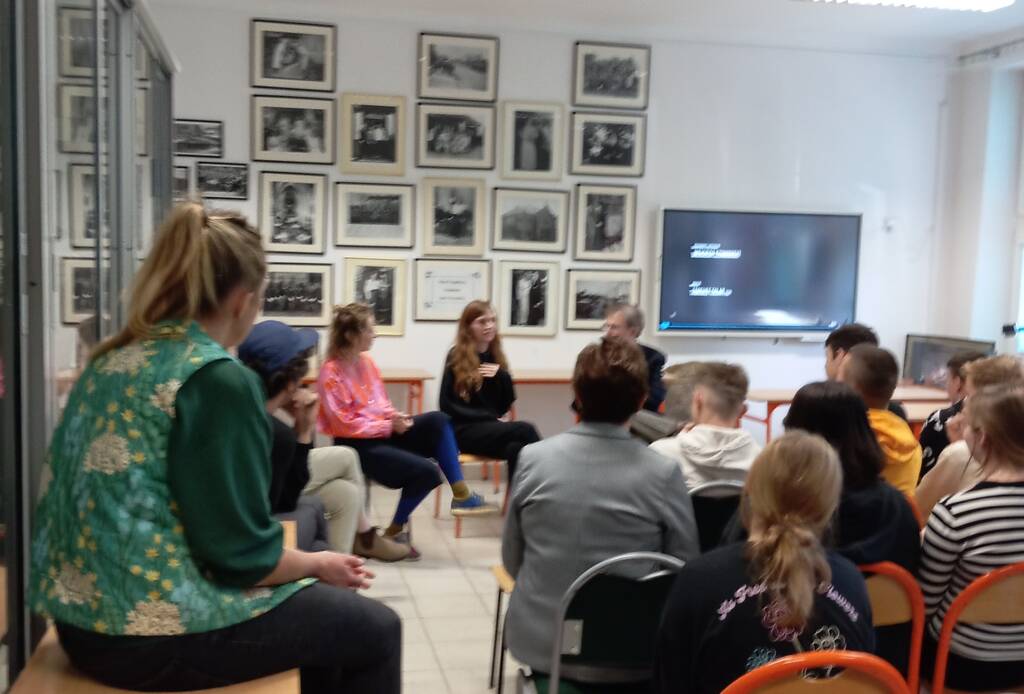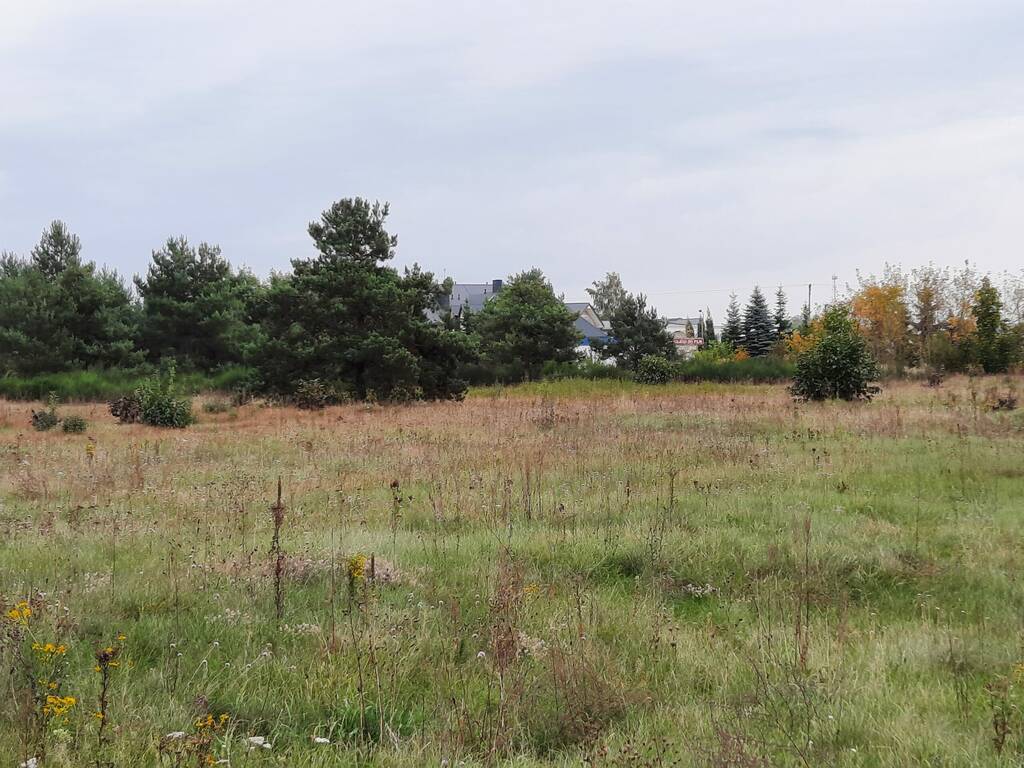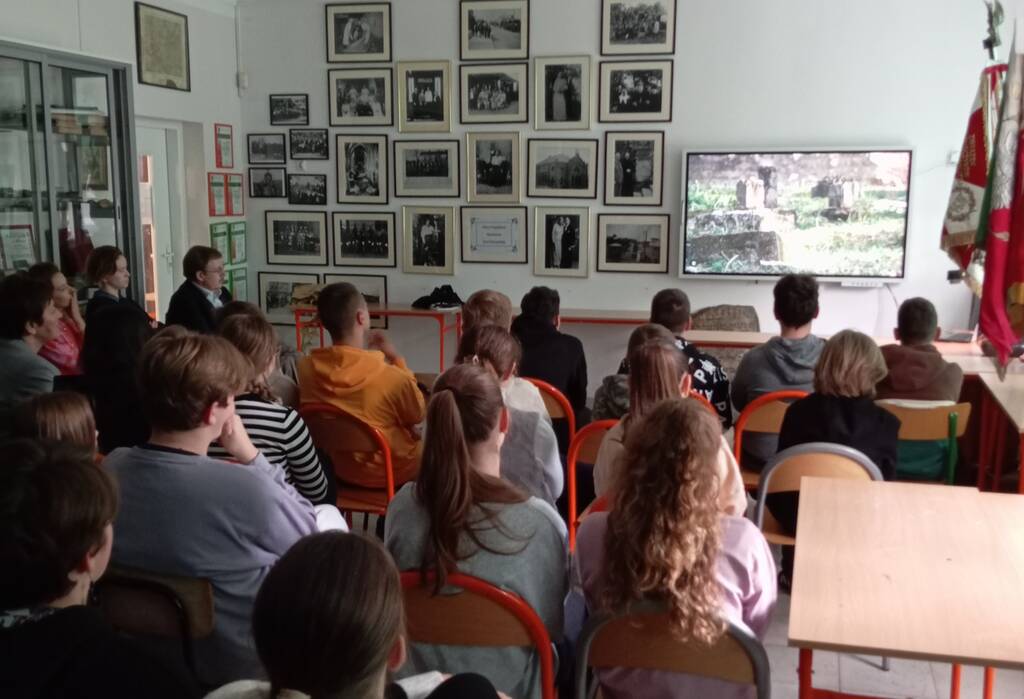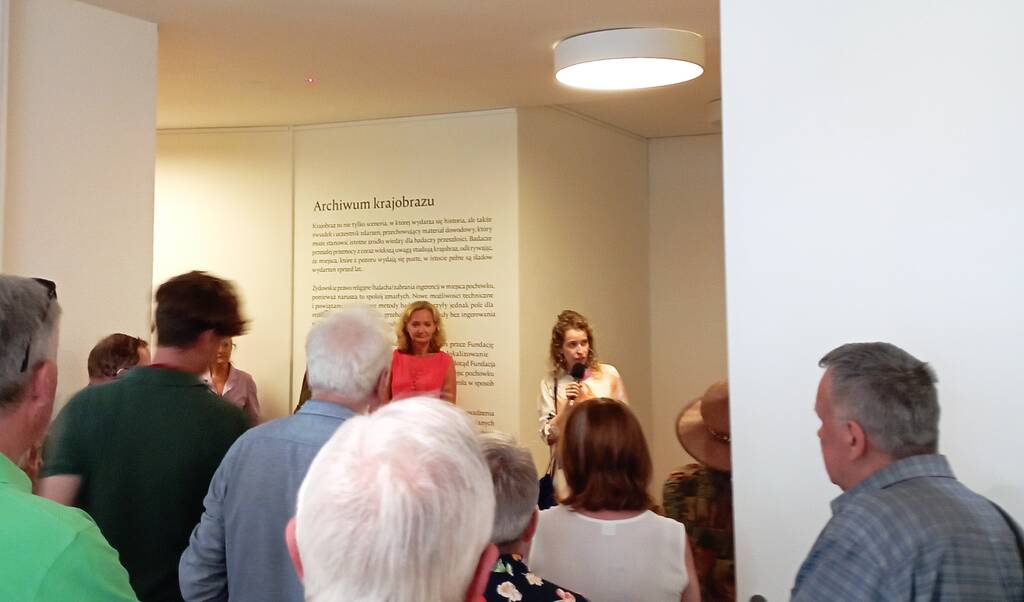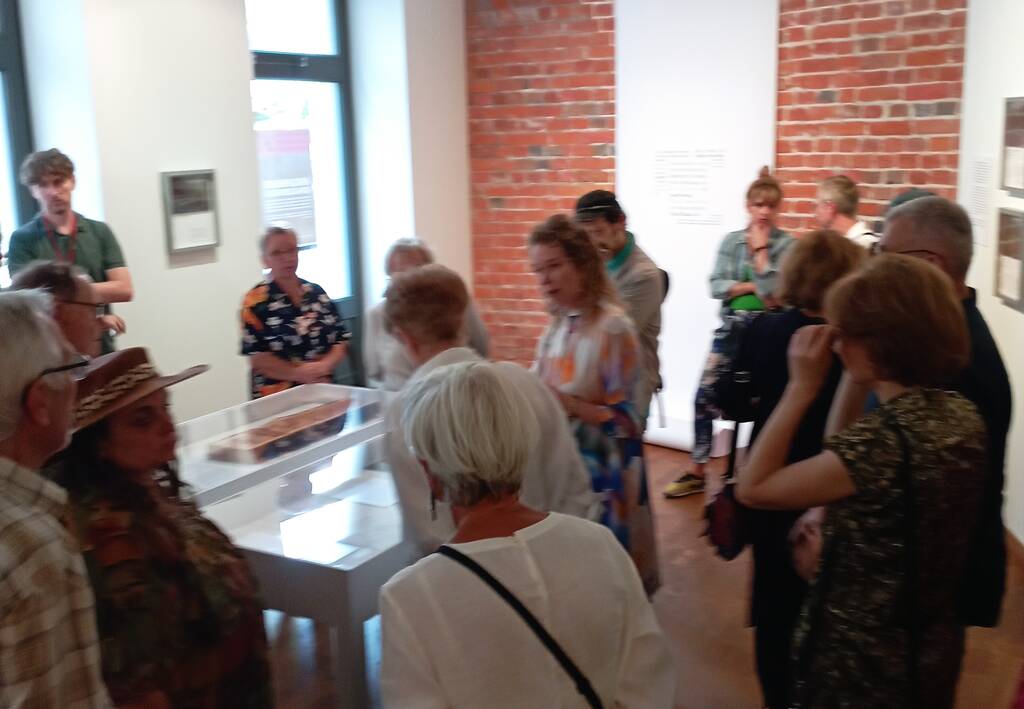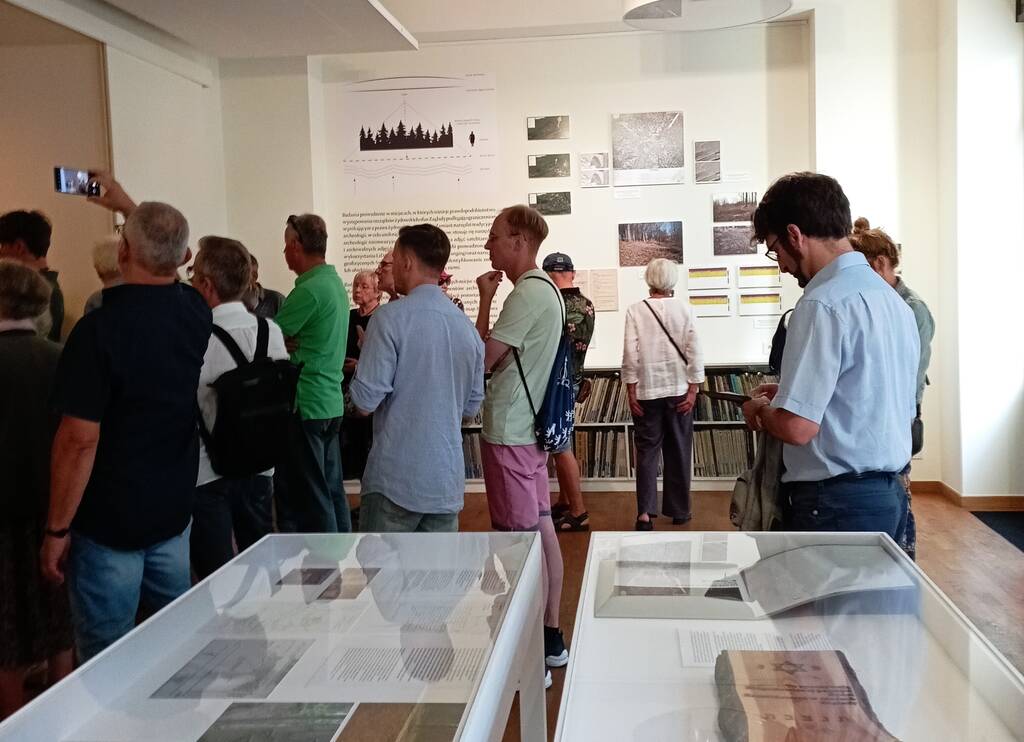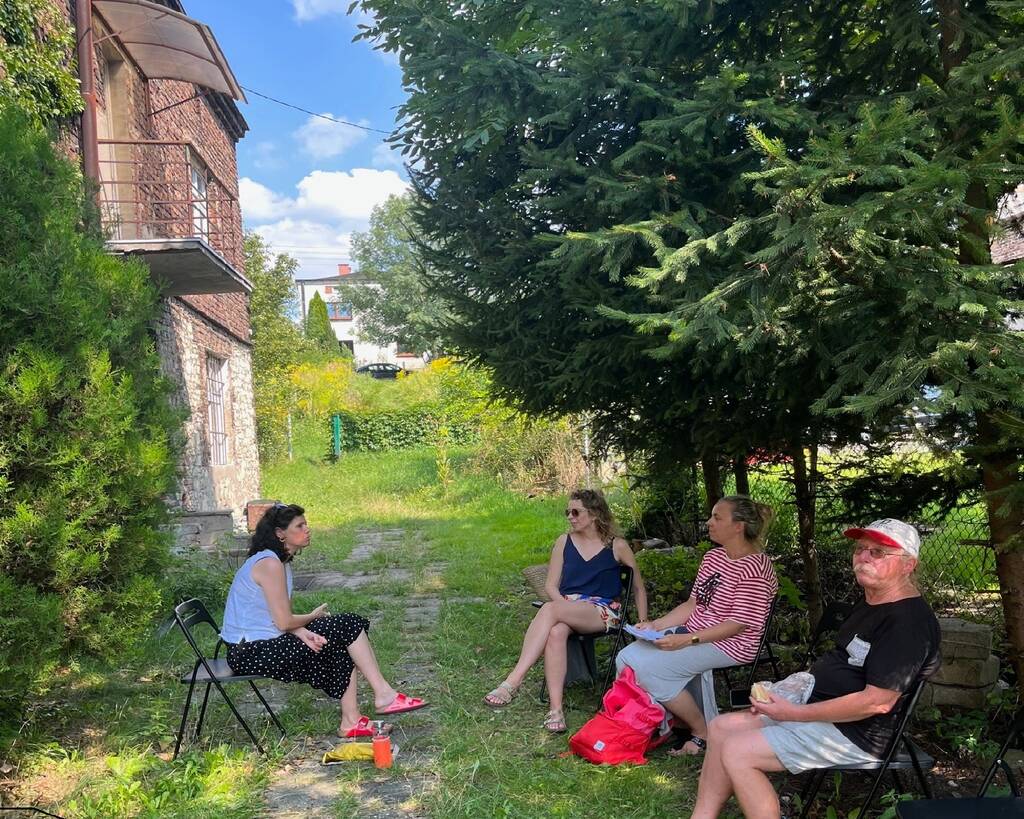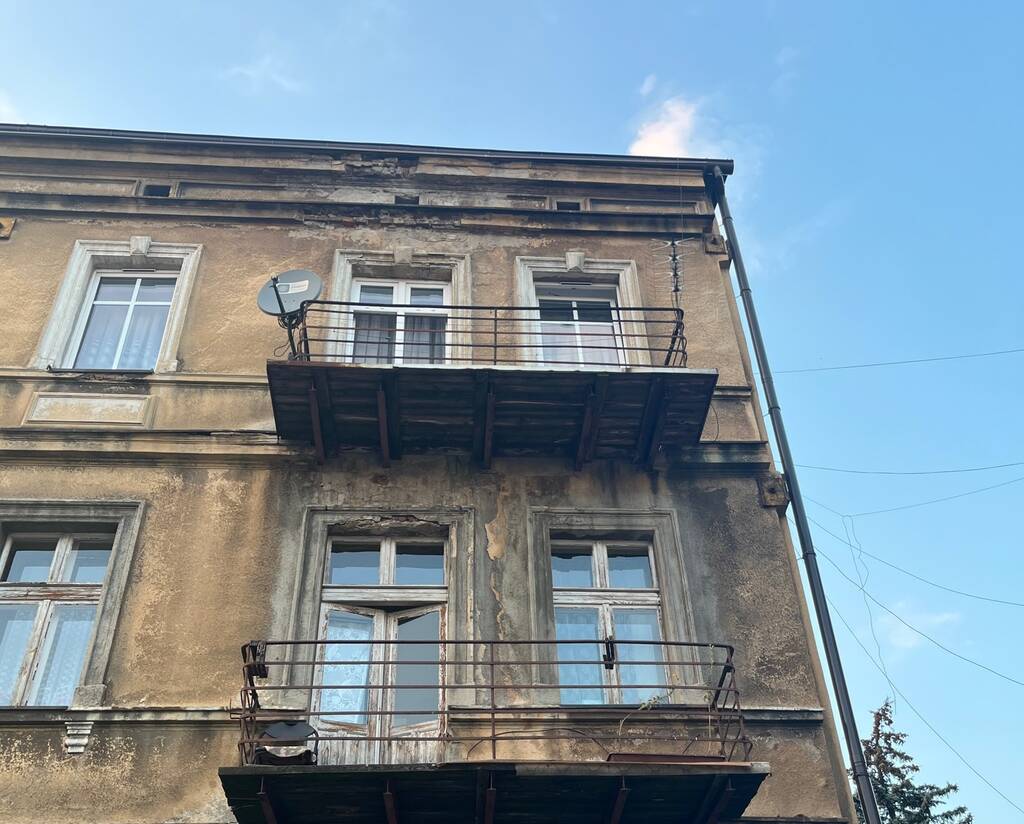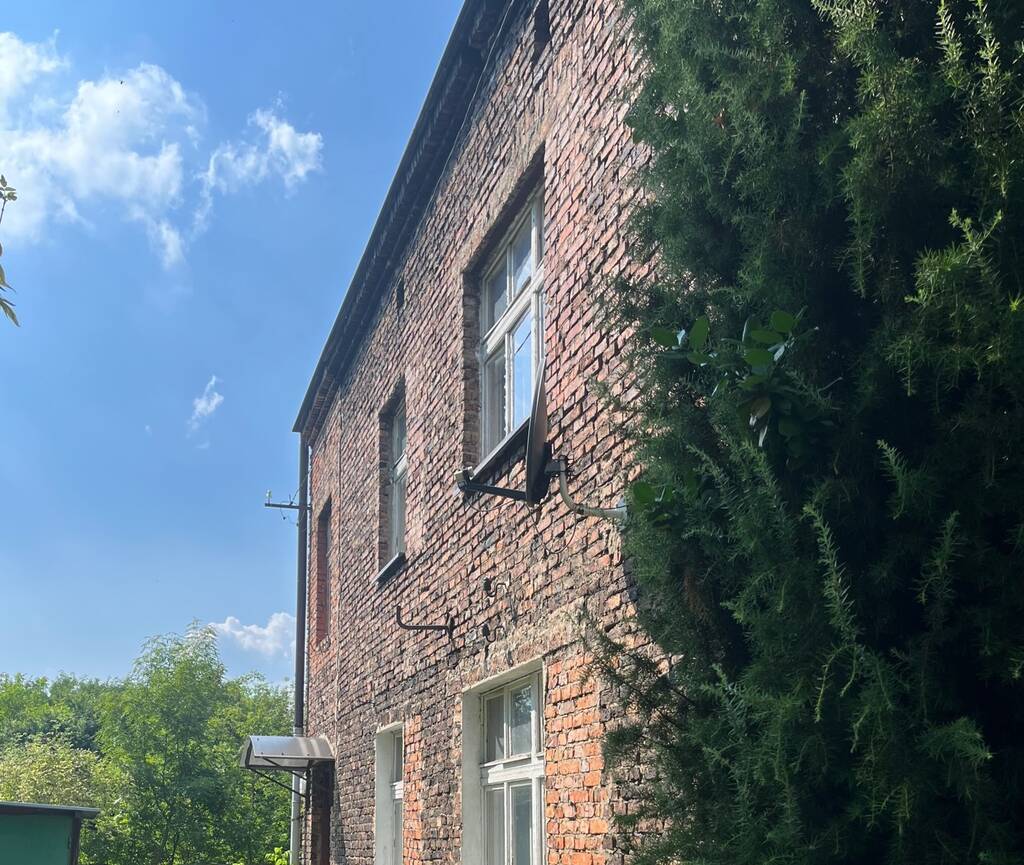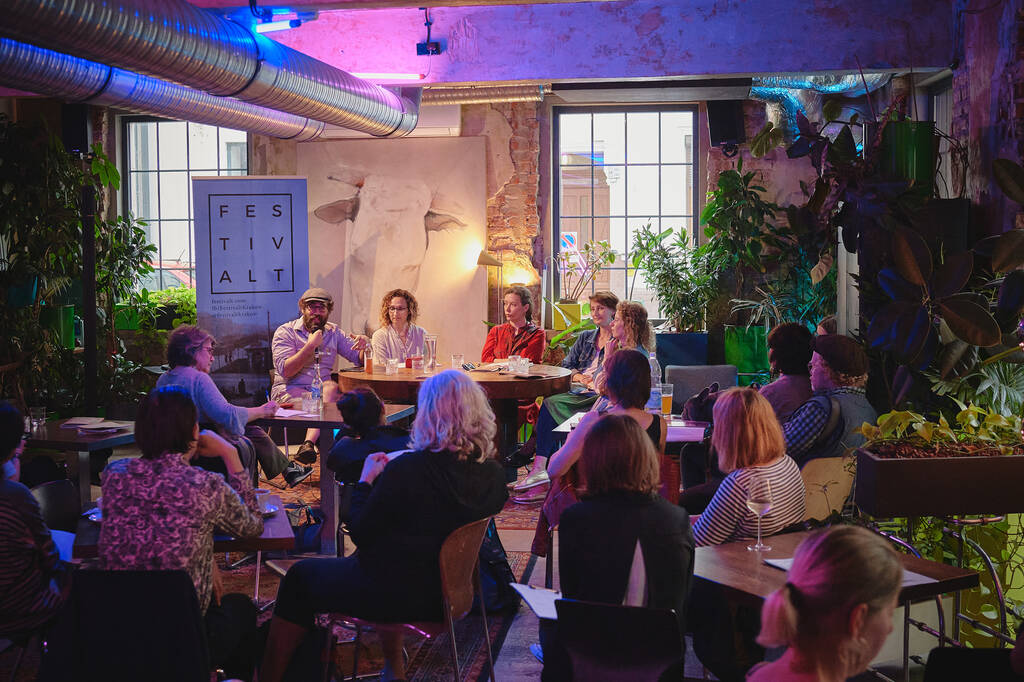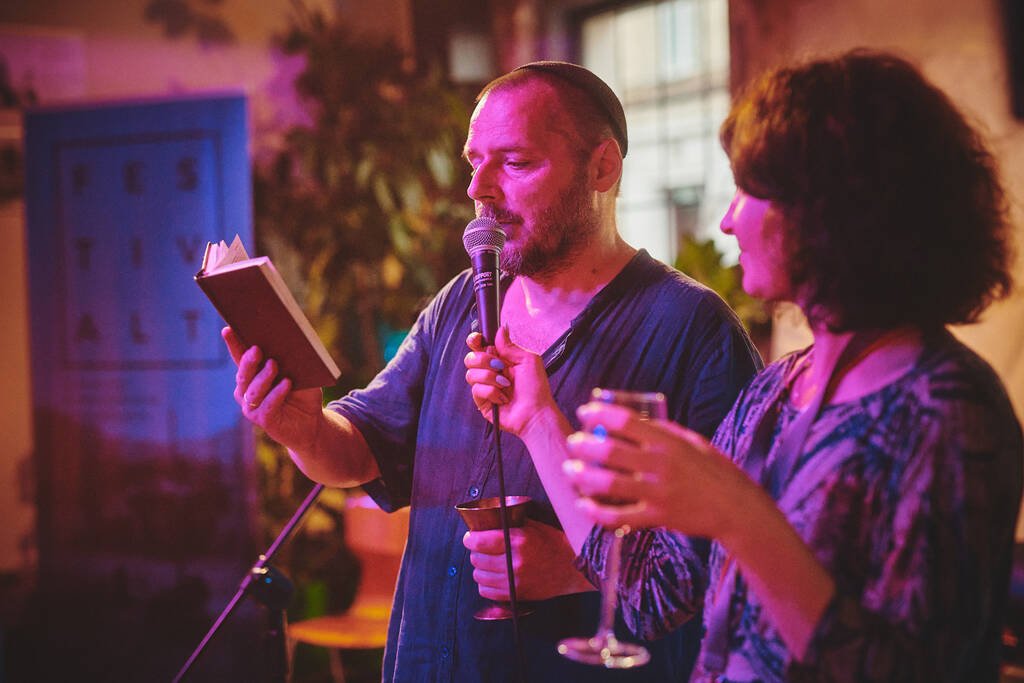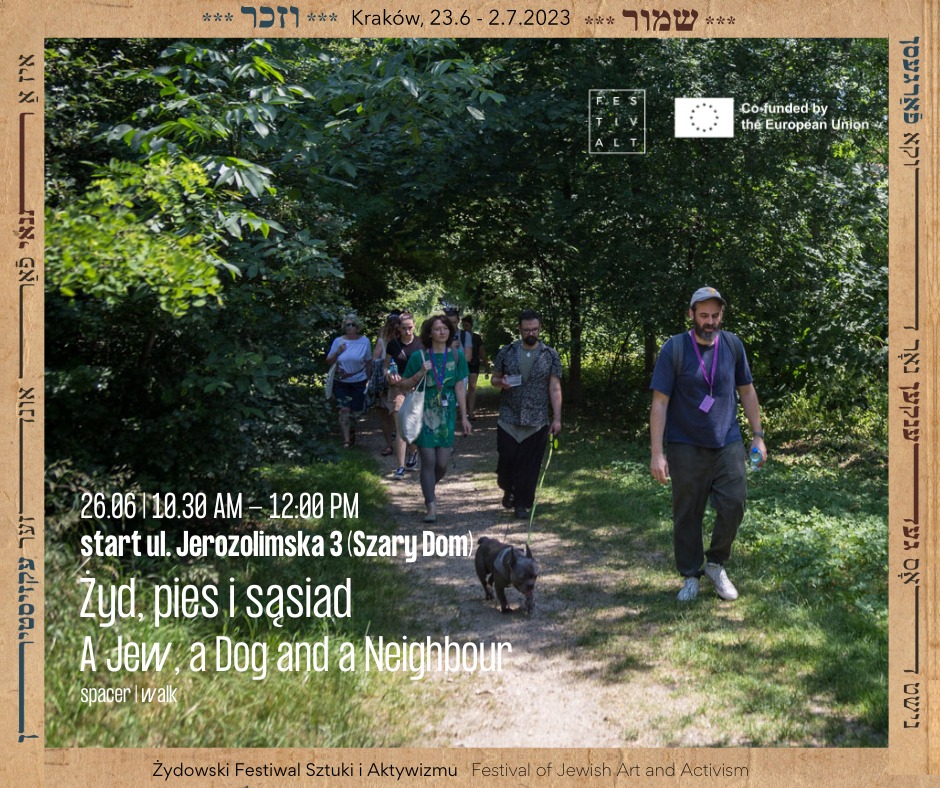we do
ReActMem – a new project Rescue Memory – activism, art and public memory (ReActMem)
In April 2024, we launched another project financed by the European Union (CERV program), this time with twelve partners from EU countries. Over the next two years, we will work together with them and local partners.
As part of ReActMem, we will continue working on difficult heritage, support educational activities, involve residents and organize more public events. We are working on new forms of commemoration, new ways of talking about the past, which is still little present or most often silenced at the social and scientific level.
Our project partners are: Urban Memory Foundation, FestivALT, Brama Cukermana, Grupa Badaczki na Granicy – PAN, JCC Warsaw, Fundacja Dokumentacji Cmentarzy Żydowskich, Żydowskie Stowarzyszenie Czulent, CEJI – A Jewish Contribution to an Inclusive Europe, LABA – A Laboratory of Jewish Culture, Marom Klub Egyesület, University of Würzburg and the Jewish Community of Estonia. The aim of the project is to inspire a collective effort to unite activists and institutions to explore and work with the past for the sake of a better future. Through a series of 65 events and initiatives, the consortium partners will explore the dynamics between activist movements and public memory narratives, both shaping and transforming the culture of memory in contemporary Europe.
The final result of the project, ensuring the transferability of experiences, ideas and solutions to other EU countries, will be the Rescue Memory Handbook for activists and public institutions, presenting the analysis, knowledge, best practices and practical tips on the subject collected by the project partners.
The Zapomniane Foundation will conduct 11 events as part of the ReActMem project.
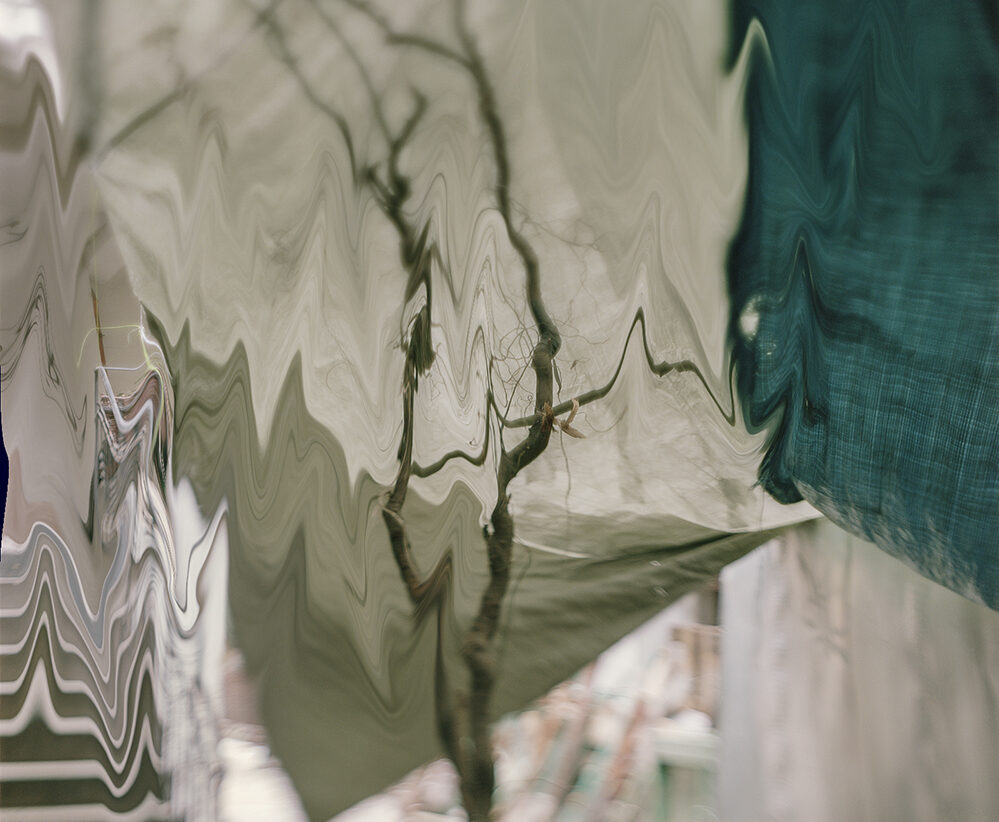
MultiMemo -BRESLAU/WROCŁAW 1933-1949: STUDIES ON THE TOPOGRAPHY OF THE SHOAH
As part of the MultiMemo project, our partner organization Urban Memory Foundation organized a series of three events in Wrocław on November 23 and 24, 2023, related to the premiere of the book “Breslau/Wrocław 1933 – 1949: Studies on the topography of the Holocaust”, touching on topics related to the project. The series included: 1) a scientific session, 2) a public session as part of the OP_BOOKS series and 3) a city walk around Jewish places related to the history of the Holocaust discussed in the book. UMF, together with its partners, the Dresden University of Technology, the Department of Jewish Studies of the University of Wrocław, the OP ENHEIM Foundation and the German-Polish Foundation for the Protection of Cultural Monuments, invited the academic community and the general public of Wrocław to a series of meetings with editors Maria Luft and prof. Tim Buchen and the book’s co-authors: Annelies Augustyns, Karolina Jara, Agnieszka Jabłońska and Daniel Ljunggren.
In the book, which was the focus of our series of events, the authors take a new look at the history of the Holocaust in Wrocław. The interdisciplinary team selected various perspectives and contexts in which exclusion, persecution and extermination occurred in urban space and reconstructed places and spheres of Jewish life: work and housing, religion and politics, art and culture. The effects of the Holocaust were also examined in retrospect – for example in relation to cemeteries, city cartography, memories of Wrocław or archival sources regarding the Holocaust. The talks during the series of events concerned, among others: the importance of topography and the adopted unusual time frame of research, 1933–1949, as opposed to the usual look at the history of Wrocław before and after 1945. The adopted perspective allowed us to notice the interconnection of worlds, the pre- and post-war ones, and to notice the continuity of some processes, such as functioning of the school in the building at the current Żelazna Street, liquidation of the Jewish cemetery at Gwarna Street, or contemporary challenges related to the preservation and commemoration of some places, such as the area of the New Synagogue at Łąkowa Street, where the 19th-century foundations of the building are still located.
The book is the result of several years of research work by an international interdisciplinary team of 22 people from 6 countries, conducted in 2018–2021 by the Dresden University of Technology. It was published in October 2023 by Neofelis Verlag, and the texts were written in English or German. Link to publication. Link to the photo reportage from the public book launch.


NeDiPa – Stakeholders meeting: lessons learned
The last of the series of Stakeholder Meetings of the NeDiPa project is behind us. We met regularly throughout the duration of the project (in the spring it will be two years since it started!), and over the months, more people joined us: organizations with which we established cooperation and partnerships, memory activists, artists, architects, representatives of local authorities, experts from various fields.
This meeting was an opportunity to summarize the activities carried out so far, draw conclusions and reflect on what we have learned. On this occasion, we also discussed the Difficult Heritage Remembrance Framework – a set of good practices, examples, recommendations and tips, which will be the final result of the NeDiPa project and which – together with partners – we plan to further develop. The premiere is scheduled for spring 2024 – stay tuned!

Multimemo: Festival Zbliżenia Gdańsk 06/09/2023 – 12/11/2023
Zbliżenia Kultur Foundation is another organization that took part in the MultiMemo project, implementing a rich program of the 11th edition of the Zbliżenia Jewish Culture Festival.
The festival program, in addition to proposals introducing and promoting Jewish culture, tradition and art, included events focusing on Polish-Jewish-German relations, the position of women in the modern world and the relations and interpenetration of Jewish, Polish and German cultures.
As part of the project, the Zoom Culture Foundation conducted, among others: the following events:
- Radio play “The Devil Has Dwelled in Europe”.
- A concert of original poetry “Kinot” by Jarosław Lipszyc dedicated to contemporary Jewish poetry.
- Concert by Mari K. “Di szajchesen – connections”.
- Lecture “Around the Great Synagogue” – meeting with the author of the book under the same title, Jacek Bielak.
- Anti-discrimination workshops dedicated to children from Gdańsk Children’s Homes.
- Workshops for students of the Secondary School of Fine Arts in Gdańsk and children from Gdańsk Children’s Homes in the New Synagogue in Gdańsk.
7.Celebrations on the occasion of the 85th anniversary of Kristallnacht – commemoration of the pogrom of the Jewish community committed by German Nazis in November 1938.


MULTIMEMO: PARTICIPATORY MEMORY WORKSHOP – Łęczna 19.10.2023
On October 19, 2023, in Łęczna, we conducted participatory memory workshops around the burial place of approximately 1,000 Jews from Łęczna. The educational workshop was aimed at involving and engaging school youth in the process of care for the burial site preceding the planned commemoration of the site. The workshops took place at the Municipal Public Library in Łęczna, which is located in the building of a 19th century building (so-called “small synagogue”) which before the II WW was a Jewish house of prayer and a Jewish school. The library is located next to the Great Synagogue and the commemorated burial site.
The workshop consisted of two parts. The first part was led by landscape architect Natalia Budnik, who created a concept and design of how to use plants in the vicinity of the burial site and a planned monument. She introduced her ideas and her design to the youth and they collectively planted plants in the area under her supervision. The second part was a result of our cooperation with a conservator of monuments who was also part of the project team responsible for preparing the monument in Łęczna, She prototyped the idea of making small stones out of “marble flour”. An introduction was made about the meaning of stones and placing stone on graves in Judaism and after that the youth made their own small white pebbles in specially prepared forms. The stones were prepared for the commemorative ceremony to be placed on the tombstone in accordance with Jewish tradition.
The workshop took place a few weeks before the commemorative ceremony (7.11.2023), which was attended by young people and residents of the town, clergy of three denominations, local authorities, representatives of various organizations, descendants of Jews from Łęczna and the Jewish community from Lublin. The youth could see the results of their work and place the “memory stones” next to the monument.


FUTURE OF OUR PAST
There are many Polish-Jewish stories that have not yet been told. Or they are known only to a few – experts who research specific topics. Or they are talked about among memory activists, but they never reach wide circulation and do not become part of common knowledge.
In order to change this and bring to the surface at least some of these stories – such as pre-war kibbutzim operating in many cities and towns in Poland, the stories of Jewish women activists and fighters, or Nobel Prize winners who were unjustly absent from history classes – we are carrying out thanks to the support of the Embassy American in Poland educational project for youth “Future of Our Past”, the aim of which is to jointly take care of the future of our past.
We will organize workshops in the form of Wikipedia edit-a-thons in five Polish cities to expand our knowledge of some of these stories together with young people and invited experts.
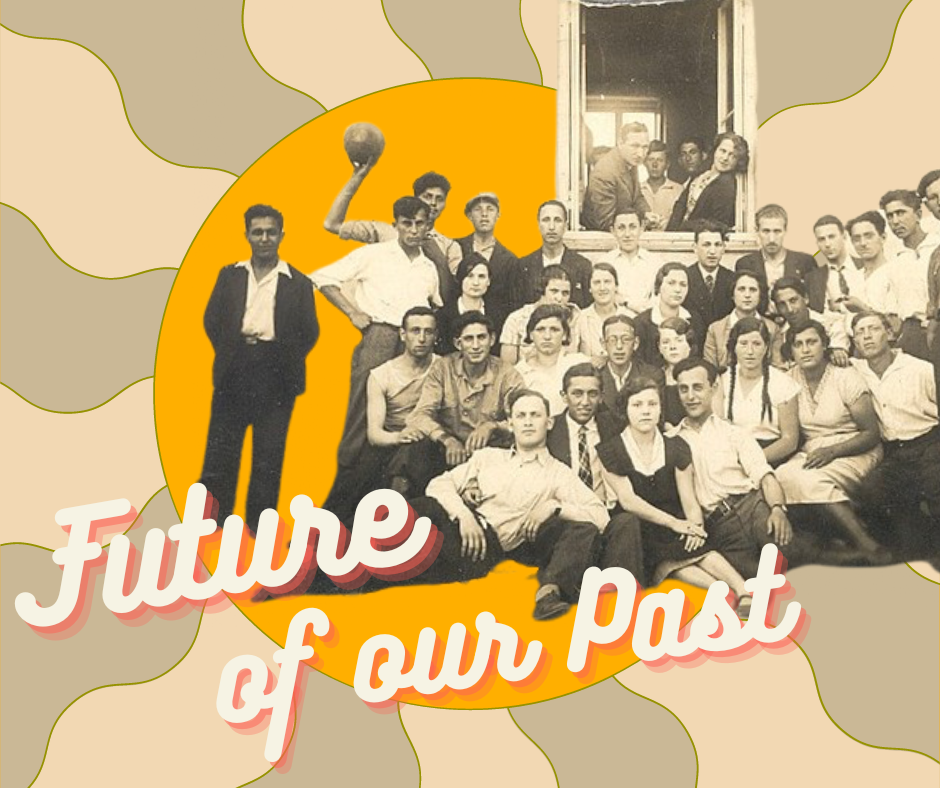
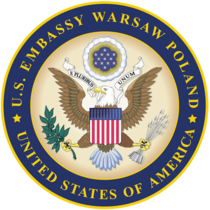
MULTIMEMO: PARTICIPATORY MEMORY WORKSHOP – Kałuszyn 17.10.2023
On October 17, in Kałuszyn, we conducted participatory commemoration workshops, the topic of which was commemorating the Jewish history of the city, the Jewish cemetery and the mass grave of Holocaust victims as part of the MultiMemo project.
The workshops were an attempt to transform the innovative commemorative practice we created – green commemorations – into a participatory event. The event began with a screening of the film “Ukos Światła”, and was followed by a meeting with the descendants of Kałuszyn Jews, Wiktoria Kurtz and her father Artur Kurtz. This was Wiktoria’s third visit to the school in her efforts to build long-term relationships with the local community, but for her father, the son of Kałuszyn Jews, it was the first visit to the city and Poland. They shared their family history, talked about who they were and what their intentions were (restoring the memory of the Jewish past in Kałuszyn) and talked to children who could ask questions and build relationships with them
The aim of the workshops was to involve local youth – 7th grade students of the Primary School in Kałuszyn – in the process of long-term involvement in building and cultivating local Jewish memory. The third part of the workshop was a conversation with landscape architect Natalia Budnik, who, together with Victoria Kurtz, presented to the youth the idea of marking the boundaries of the Jewish cemetery and mass grave with plants (in line with the idea of “green commemoration”). Together they presented the idea and brought to school plants selected for planting in the cemetery. The children learned about the plants, could touch them and ask questions. After the workshops, the plants were planted in pots on the school premises so that the children could care for them throughout the winter and plant them in the cemetery in the spring.
The idea of the workshops was to expand the idea of “green commemorations” and develop a methodology in which it can be a longer process involving the local community. Thanks to successful cooperation with the school, children will take care of the plants until spring, when they will plant them in a designated place in the cemetery.


MULTIMEMO – EXHIBITION OPENING: LANDSCAPE ARCHIVE – 25/08/2023
As part of Knowledge Mobilization, we organized an exhibition on places with difficult heritage – in particular: uncommemorated burial places of Holocaust victims, which are objects of repeated exclusion – as places of the history of Jews and Roma, as burials of civilians, including women and children, etc. The exhibition was presented in the Austrian Cultural Forum as part of the Singer’s Warsaw Festival from August 25, 2023 to September 8, 2023. The exhibition was based on artistic research of these burial places conducted by the Zapomniane Foundation. As we studied the landscape with increasing care, we discovered that places that seemed empty were actually full of traces of events that had happened years ago. The exhibition explores these traces, as well as the new artistic tools and technical possibilities and associated new research methods that have opened up the field to study topography without interfering with it in the way traditional archeology does, providing digital data about the knowledge archived in the landscape. The exhibition was an attempt to propose a new approach to commemoration and commemoration, more interdisciplinary and intersectional, combining art, activism and academia.


NEDIPA: MEETING OF STAKEHOLDERS – Będzin, Gliwice, Bytom 19.08.2023
Another meeting of stakeholders of the NeDiPa project, which took place on August 19 in Będzin, is behind us. As part of networking memory activists and exchanging experiences, we visited Karolina and Piotr Jakoweńko from the Brama Cukermana Foundation in Będzin and met with local stakeholders from Upper Silesia & Dąbrowa Basin.
The purpose of the meeting was to get acquainted with memory activists operating in Upper Silesia & Dąbrowa Basin and exchange experiences in working with memory, building cooperation, as well as presenting current project activities to organizations, individuals and initiatives operating locally in the field of memory and care of Jewish heritage.
The meeting began with a walk around the area of the Będzin ghetto. Representatives of the Cukerman’s Gate Foundation presented what they have managed to do for the heritage and memory of Jews in Będzin and the region since 2009: saving the Jewish house of prayer located in the so-called Cukerman’s Gate, where historical polychromes have been preserved, a presentation of a collection of previously unpublished photos of Żarki residents from 1937-42, taken by a local photographer Józef Bacior, and the renovation of a commemorative plaque from 1947 in the Będzin ghetto – in the place of a bunker of the Jews of the resistance movement.
We also visited the Upper Silesian Jews House of Remembrance (a branch of the Gliwice Museum) with a wonderful exhibition about Jews in Upper Silesia, located in a restored pre-burial house erected in the Jewish cemetery at the beginning of the 20th century. We took a walking tour of Bytom, discovering local architectural heritage, in particular by the architects of pre-war Wrocław (Breslau), the Ehrlich brothers.
At the final part of the day, current activities carried out as part of the NeDiPa project were discussed with stakeholders, next steps planned in the project were presented and ideas for innovative best practices in working with difficult heritage were exchanged.

MULTIMEMO: FestivALT 23.06–2.07.2023
FestivALT – a 10-day festival of Jewish art, activism and education, is another event organized as part of the MultiMemo project by our project partner, the FestivAlt Association. It was great to be part of the rich FestivALT program, co-creating some of the events: “Community of (difficult) heritage?” – conversation, “Jew, dog and neighbor. A neighborhood walk and a practical introduction to Jewish law” Schwarz – a urban walk.
The program included 24 events: performances, discussions, urban walks, workshops, exhibitions, created by authors and artists from Central and Eastern Europe, America and Canada.
The festival was themed around the notion of intersectional memory with a particular focus on “doykait” – a Yiddish word that can be understood as “Hereness” or the “here and now”. It was an idea popularized during the interwar periods by the Bund (Jewish Socialist Party) and it was most commonly connected to the struggle for Jewish rights and cultural autonomy wherever Jews were living. For the Bund, this meant advocating for the strengthening of Central and Eastern European Jewry and firmly claiming their homeland in the Diaspora, rather than being separated out and relegated to Israel. For FestivALT we used the notion of “Doykait” as advocative lens for the contemporary intersectional Polish Jewish Identity.


